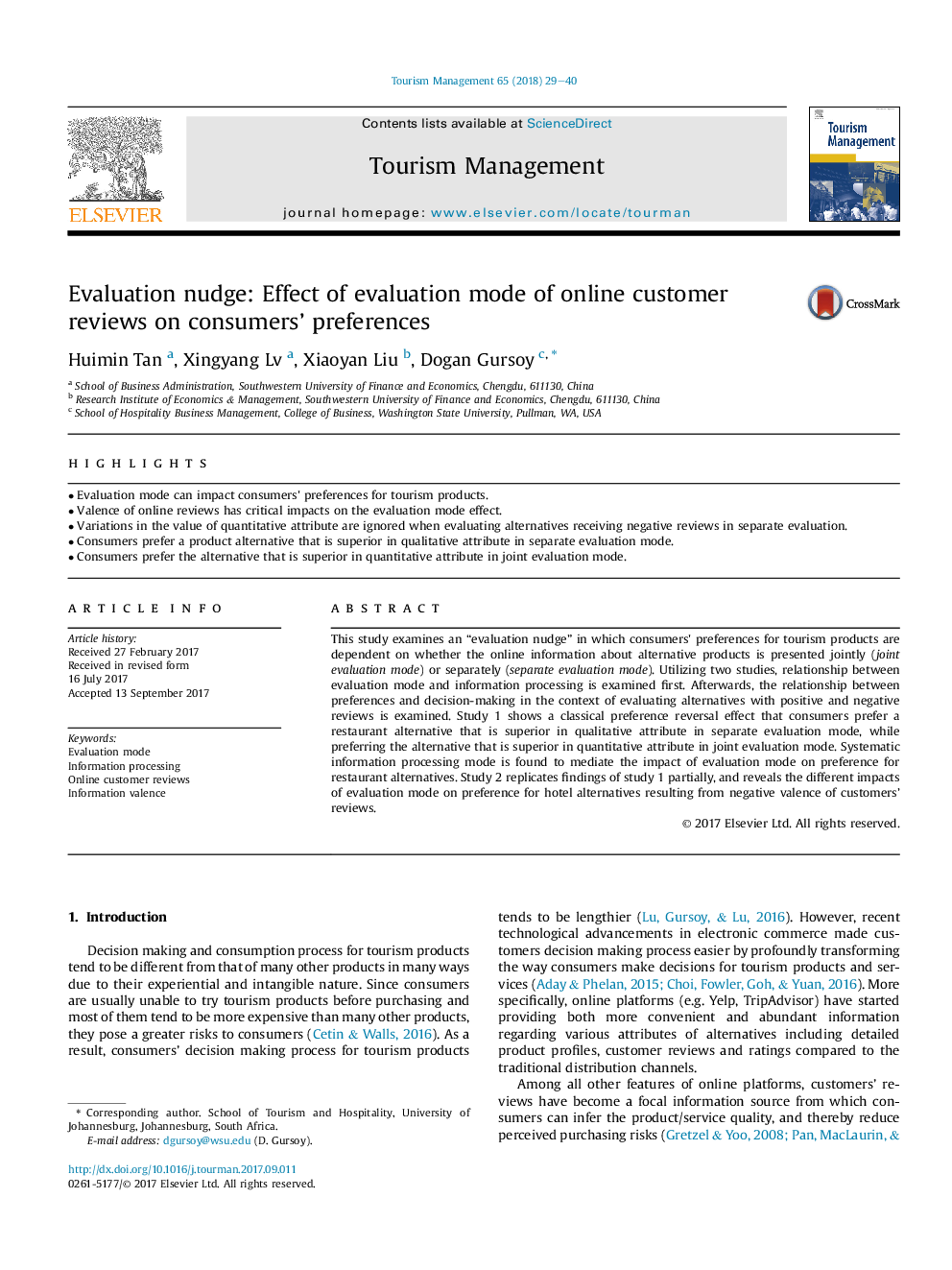| Article ID | Journal | Published Year | Pages | File Type |
|---|---|---|---|---|
| 5108458 | Tourism Management | 2018 | 12 Pages |
Abstract
This study examines an “evaluation nudge” in which consumers' preferences for tourism products are dependent on whether the online information about alternative products is presented jointly (joint evaluation mode) or separately (separate evaluation mode). Utilizing two studies, relationship between evaluation mode and information processing is examined first. Afterwards, the relationship between preferences and decision-making in the context of evaluating alternatives with positive and negative reviews is examined. Study 1 shows a classical preference reversal effect that consumers prefer a restaurant alternative that is superior in qualitative attribute in separate evaluation mode, while preferring the alternative that is superior in quantitative attribute in joint evaluation mode. Systematic information processing mode is found to mediate the impact of evaluation mode on preference for restaurant alternatives. Study 2 replicates findings of study 1 partially, and reveals the different impacts of evaluation mode on preference for hotel alternatives resulting from negative valence of customers' reviews.
Related Topics
Social Sciences and Humanities
Business, Management and Accounting
Strategy and Management
Authors
Huimin Tan, Xingyang Lv, Xiaoyan Liu, Dogan Gursoy,
